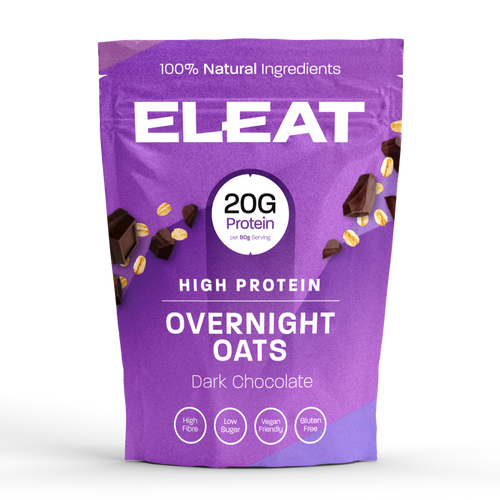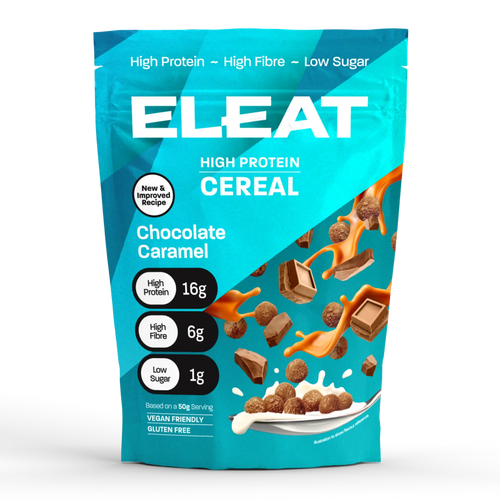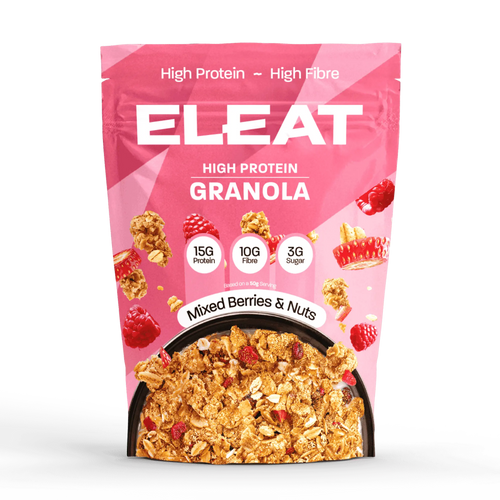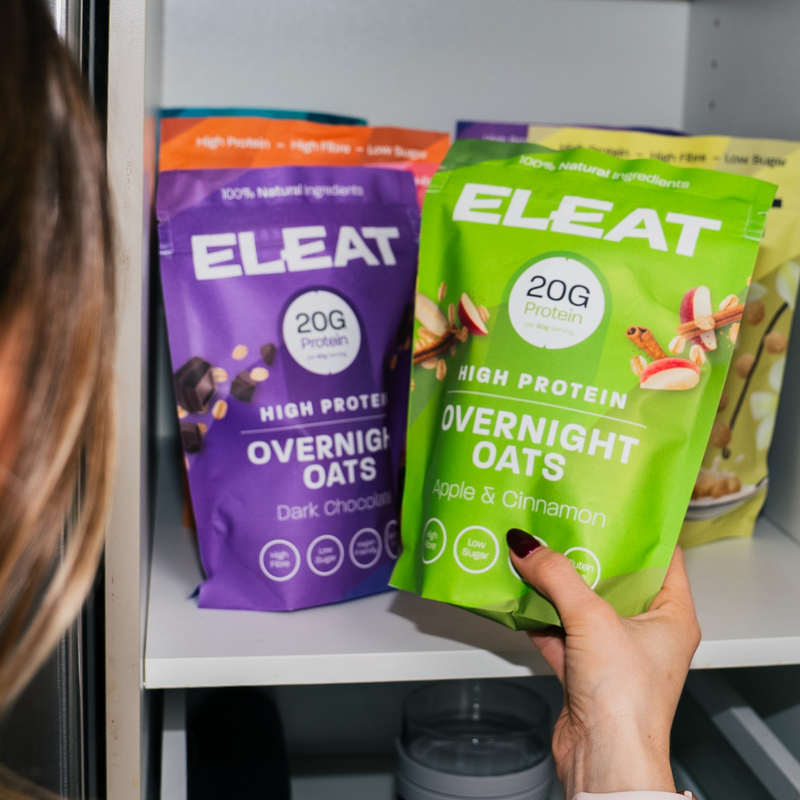In this article:
Electrolytes are essential minerals that help regulate various functions in the body, including hydration, muscle contractions, and nerve signalling. They carry an electrical charge, allowing cells to communicate and maintain balance within the body’s fluids.
From keeping your muscles working properly to ensuring your brain and heart function efficiently, electrolytes play a crucial role in overall health. They help maintain the right amount of water inside and outside cells, prevent muscle cramps, and support proper nerve function. Whether you're sweating after a workout or simply going about your daily routine, your body constantly relies on electrolytes to stay balanced and energised.
Understanding what electrolytes are and how to replenish them is key to staying healthy and feeling your best.
What Are Electrolytes?
Electrolytes are minerals that dissolve in bodily fluids and carry an electrical charge. They are essential for various physiological functions, including maintaining fluid balance, supporting nerve signals, and enabling muscle contractions. Without proper electrolyte levels, the body struggles to perform basic processes, leading to issues like dehydration, muscle weakness, and irregular heart rhythms.
Key Electrolytes and Their Roles
Sodium (Na⁺) – Regulates fluid balance, supports nerve signalling, and helps maintain blood pressure.
Potassium (K⁺) – Essential for muscle contractions, heart function, and preventing cramps.
Calcium (Ca²⁺) – Crucial for strong bones and teeth, muscle contractions, and nerve transmission.
Magnesium (Mg²⁺) – Helps with muscle relaxation, energy production, and nerve function.
Chloride (Cl⁻) – Works with sodium to maintain fluid balance and support digestion.
Phosphate (HPO₄²⁻) – Important for energy storage and bone health.
Bicarbonate (HCO₃⁻) – Regulates pH balance and prevents excessive acidity in the body.
Each of these electrolytes plays a unique role in keeping the body functioning properly. Maintaining the right balance is essential for overall health, as both deficiencies and excesses can lead to serious health complications.
Signs of Electrolyte Imbalance
Maintaining the right balance of electrolytes is crucial for overall health. When levels become too low or too high, the body can experience a range of symptoms that affect hydration, muscle function, and even heart health. Recognising these signs early and taking steps to restore balance - whether through diet, hydration, or medical advice - can help maintain optimal health and prevent complications.
Symptoms of Electrolyte Deficiency
A lack of essential electrolytes can lead to:
Dehydration – Feeling excessively thirsty, dry mouth, or dark urine.
Muscle cramps and weakness – Low potassium, magnesium, or calcium can cause spasms or difficulty in muscle movement.
Dizziness and confusion – Sodium and potassium imbalances can impact brain function and blood pressure.
Fatigue – Low electrolytes can disrupt energy production and nerve signalling.
Symptoms of Excess Electrolytes
Too much of a particular electrolyte can also be problematic:
High blood pressure – Excess sodium can lead to fluid retention and increased blood pressure.
Irregular heartbeat – High potassium or calcium levels can affect heart rhythm.
Swelling (oedema) – Excess sodium can cause bloating and water retention.
Nausea and confusion – High levels of certain electrolytes, like calcium, can impair cognitive function and digestion.
Common Causes of Electrolyte Imbalance
Electrolyte levels can be thrown off due to:
Sweating excessively – Losing sodium and potassium through sweat, especially during exercise or hot weather.
Illness – Vomiting, diarrhoea, or kidney problems can deplete electrolytes rapidly.
Poor diet – Not consuming enough electrolyte-rich foods or drinking too much water without replenishing minerals.
Medications – Diuretics, laxatives, and certain chronic medications can affect electrolyte levels.
How To Take Electrolytes
Proper electrolyte levels are essential for hydration, muscle function, and overall health. You can replenish electrolytes through diet, drinks, or supplements, depending on your needs.
By choosing the right sources of electrolytes and understanding your individual needs, you can maintain a healthy balance and support your body’s essential functions.
Here’s how to do it effectively:
1. Through Diet
The best way to get electrolytes is through a well-balanced diet. Some of the top natural sources include:
Potassium – Bananas, oranges, potatoes, spinach, and avocados.
Calcium – Dairy products like milk, yoghurt, and cheese, as well as leafy greens and almonds.
Magnesium – Nuts, seeds, whole grains, and dark chocolate.
Sodium & Chloride – Table salt, pickles, and salted nuts.
A varied diet rich in fruits, vegetables, dairy, and whole foods ensures a steady supply of electrolytes without the need for supplementation.
2. Electrolyte Drinks and Supplements
For those who need an extra boost, electrolyte drinks and supplements can help restore balance quickly.
Sports drinks vs. homemade solutions – Commercial sports drinks like Gatorade contain electrolytes, but they may also have added sugars and artificial ingredients. A homemade solution (water, a pinch of salt, lemon juice, and honey) can be a healthier alternative.
Electrolyte powders and tablets – These can be dissolved in water and are useful for athletes, travellers, or those recovering from illness. They provide a controlled dose of electrolytes without excess sugar.
Risks of overuse – While supplementation can be beneficial, excessive sodium or potassium intake can lead to high blood pressure, heart issues, or kidney strain. It’s important to use them only when necessary.
3. Special Considerations
Electrolyte needs vary based on lifestyle, health conditions, and environment:
For athletes – Intense exercise leads to sweat loss, making electrolyte replenishment essential. Hydration drinks with sodium, potassium, and magnesium can prevent muscle cramps and fatigue.
For people with health conditions – Those with kidney disease, high blood pressure, or heart conditions need to monitor their electrolyte intake carefully, as imbalances can be dangerous. Consulting a doctor before using supplements is advised.
Climate factors – Hot and humid environments increase sweat loss, requiring more electrolyte intake, while colder climates may not demand as much replenishment.
Conclusion
Electrolytes are fundamental to maintaining hydration, muscle function, nerve signalling, and overall health. Whether through diet, hydration, or supplementation, keeping your electrolyte levels balanced is essential for preventing fatigue, muscle cramps, and other health complications.
By incorporating natural electrolyte sources like fruits, vegetables, dairy, and nuts into your diet, you can ensure a steady supply of these vital minerals. For those with higher needs - such as athletes or individuals in hot climates - electrolyte drinks and supplements can offer additional support. However, it's important to use them wisely to avoid imbalances.
Listening to your body and recognising the signs of electrolyte deficiencies or excesses can help you stay healthy and energised. Prioritising electrolyte balance is a simple yet effective way to support your body’s essential functions and overall well-being.















